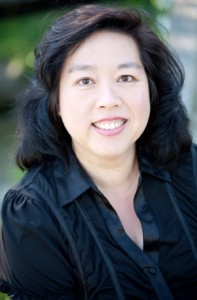Lessons learned from sacrifice, study and solidarity
Name: Suzie Mah
Occupation: Teacher
Union: BC Teachers’ Federation
People often say that the finest teachers have a vocation or a calling. For Vancouver teacher Suzie Mah, the call came at an early age. In the fall of 1966, when she first entered Queen Alexandra Elementary School, little did she imagine that her Kindergarten teacher would capture her heart and shape her career.
“I’ll never forget the magic of Mrs. Watson. She was so kind and gentle. I adored her and that’s really what made me want to become a teacher. I even wrote about her in my Master’s thesis,” Mah recalled.
Like so many immigrants, Mah’s parents made deep sacrifices to achieve a better life in Canada. Growing up in China, they had little opportunity to go to school — her Dad reached Grade 5 and her Mom Grade 3— so it was tremendously important to them that their children be well-educated.
“My parents always said, ‘Listen to your teachers, respect your teachers,’ and we did,” Mah said. They encouraged her to do well, but had traditional expectations too: “They’d say, ‘You’re a girl. You shouldn’t be so outspoken. Don’t cause trouble or rock the boat.’ I didn’t listen, of course!”
The 1960s were a time of innovation in schools, and rapid change in society. “My teachers were these amazing women who wore mini-skirts and pant suits, and talked about girls being treated equally to boys. They encouraged us to play co-ed sports and to become involved in student council. That was pioneering stuff!”
After she graduated from UBC’s Education Faculty in 1985, Mah specialized in teaching English as a Second Language, since so many immigrants and refugees were arriving from Asia, Eastern Europe and Central America. “In my class I had children from many countries all speaking different languages. I had kids who came from refugee camps, kids who had seen war and people being shot, kids who had never held a pencil or sat at a desk,” she recalled.
As a young teacher struggling to establish her career, she needed to know her rights in the workplace. She became involved in her union, the Vancouver Elementary School Teachers’ Association (VESTA), because “ever since I was a kid, I’ve had a strong interest in justice.”
“I came to understand there’s a rule book [the collective agreement] and we all play by the book,” she said. “Fair process is so important.”
She started out as a Status of Women contact, and over the years served on many committees and took on many different roles: school staff rep, local negotiator, VESTA president, provincial bargaining team member, and member of the Executive Committee of the BC Teachers’ Federation. During last year’s job action, Mah served as provincial returning officer, overseeing strike and ratification votes, and verifying the accuracy of the outcomes.
After all this experience, what are the most important lesson she has learned about teaching and working with the union? “Fundamentally, unions are about fairness, openness and integrity at work,” she said, adding that all those qualities are also important in the classroom. “Being a teacher is a huge responsibility, but it’s much more than learning outcomes. It’s about making connections … about helping to unlock children’s potential so they become independent human beings.”
